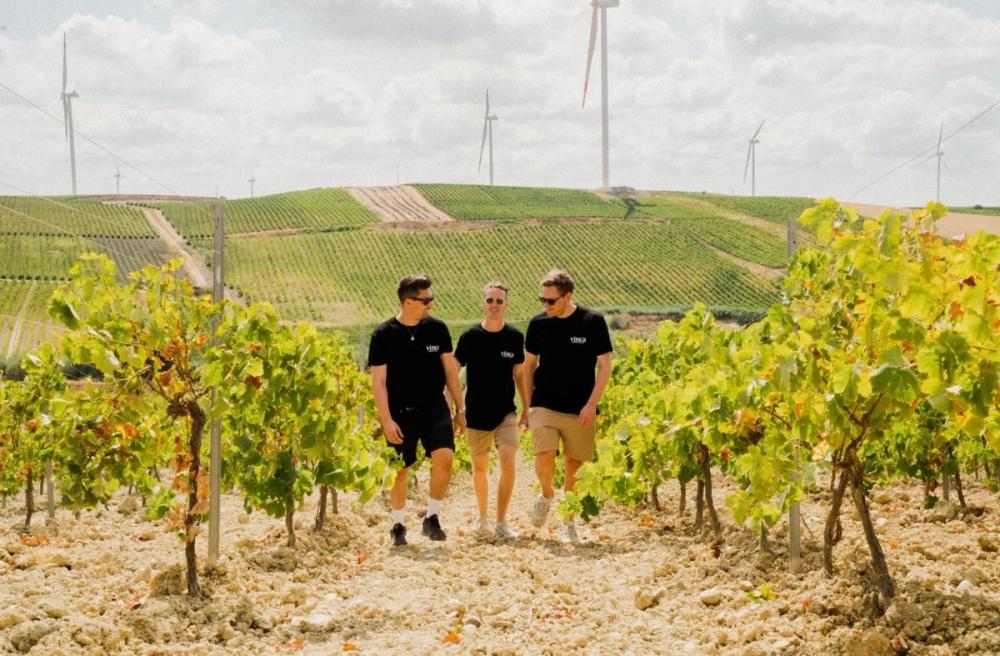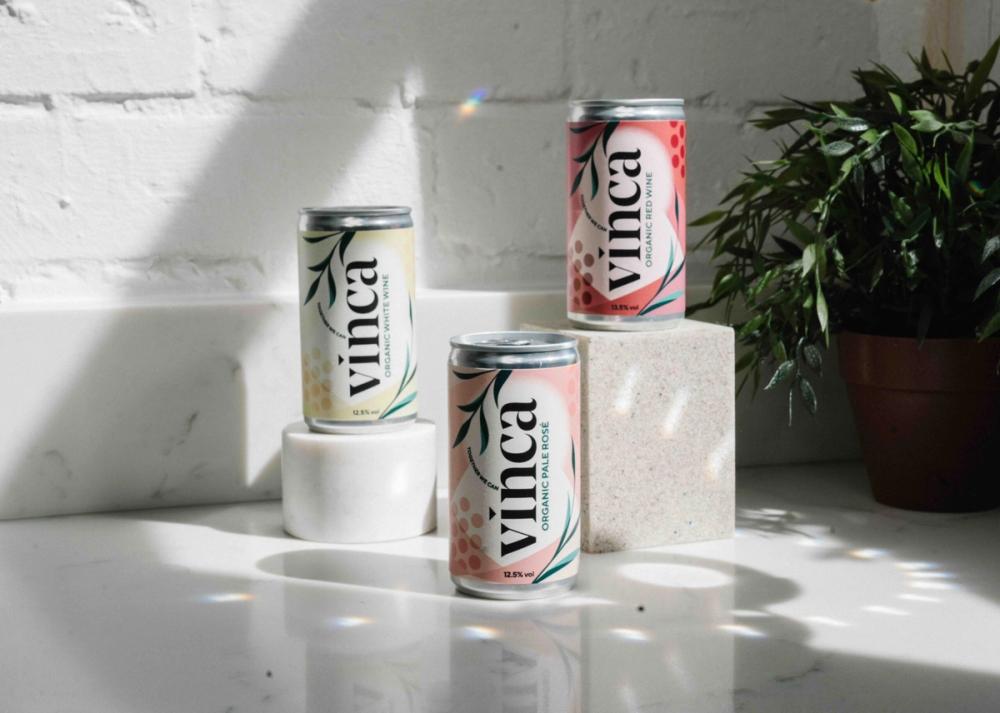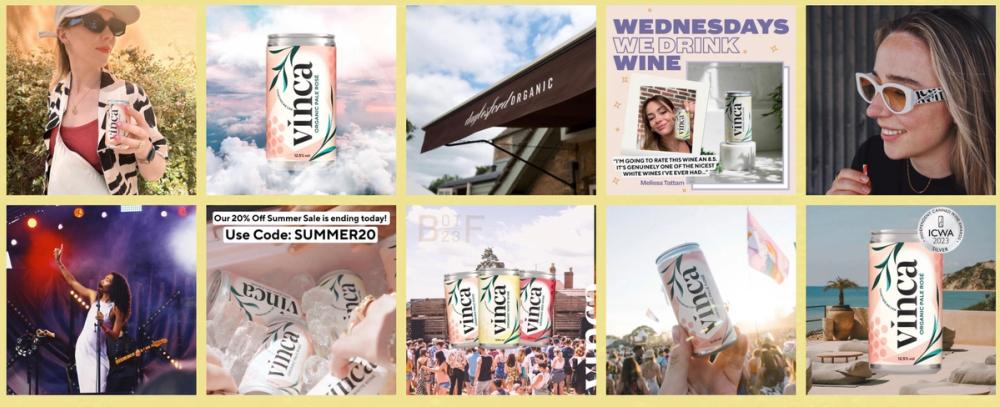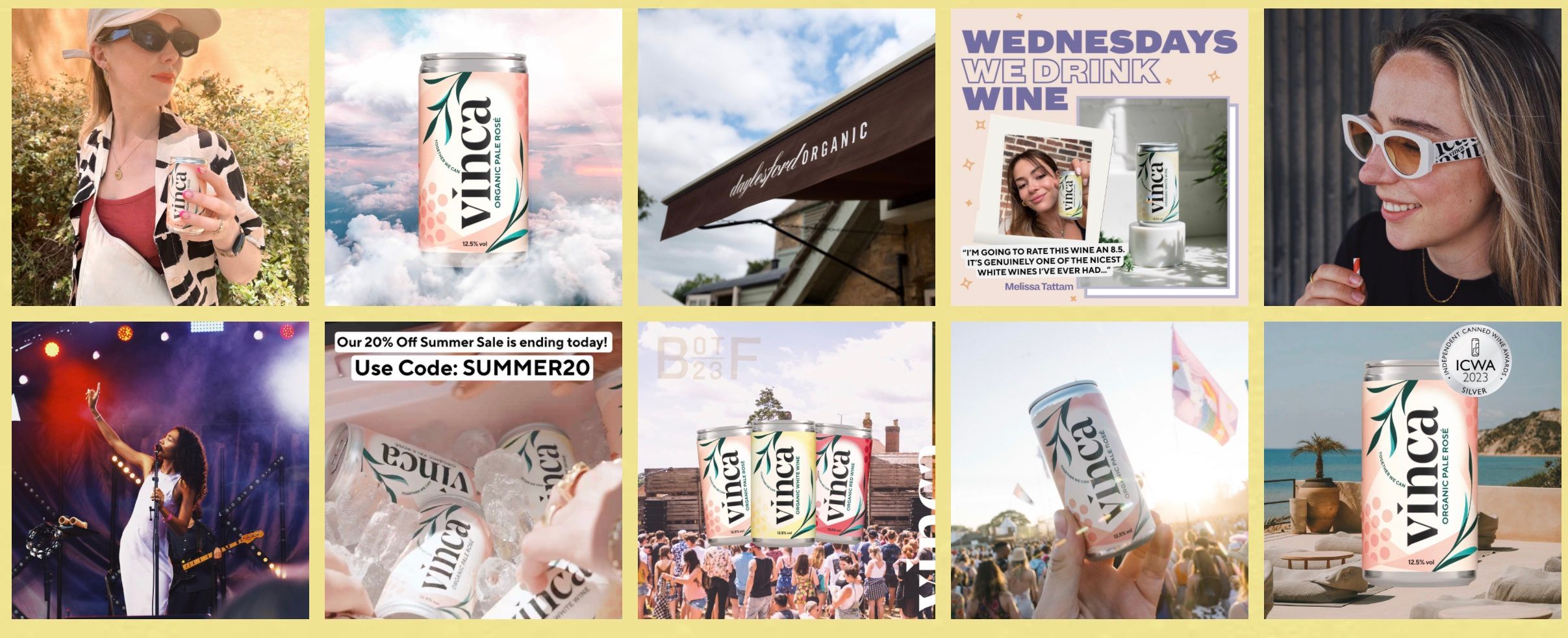Vinca’s Jack Green believes the biggest potential for cans lies in converting existing wine drinkers and widening distribution and acceptance in the on-trade.
What do you think is the main appeal of canned wine?
Convenience, sustainability and moderation. It started as a trend but now is quickly becoming a staple of the global wine industry, with big players like Virgin Atlantic launching canned wine onboard and more recently Waitrose moving all of their single serves to cans. What was missing from the canned wine market was quality. We felt brands were focussing on the convenience of the cans and the wine was a secondary thought. We wanted to be a wine forward company with everything being about the quality to bring consumers the best canned wine experience possible.
Who is your target demographic?

When we originally launched Vinca – along with my co-founders Charlie Vass and Zak Walters – we thought our target market would be 20-35 year olds. What two years of sales has taught us is that this is not the case, and the average age of a customer on our website is 46, showing us a wider demographic is enjoying canned wine. The feedback from our customers is they like the moderation aspect of being able to enjoy a glass of wine without opening a bottle.
Where do you think the UK is in terms of canned wine compared to other markets? Are consumers more receptive here than in Europe for example, and what about the US and Australia?
I believe the UK is about three to four years behind the canned wine market in the US, where picking up a four-pack of $10 a can of wine has become the norm. We are also seeing huge interest in cans from the Nordic countries, especially Sweden which has a sustainability focus to their wine buying habits and are much more adventurous with alternative wine packaging. Australia is also extremely interested in the format. We are seeing huge growth in the travel sector which is looking to cut all plastic PET bottles from their menus in favour of the infinitely recyclable can. We are currently talking to multiple airlines, train lines, hotels & venues and Vinca will have new listings to announce very soon.
What are your ambitions in the UK market?

Vinca is gaining listings across the off-trade, on airlines and now wants to crack the on-trade
The UK canned wine market is still relatively small. The global canned wine market, however, is exploding and expected to reach £428m by 2028, in 2021 it was around £185m. Ultimately, our ambitions aren’t limited to dominating the canned wine market, rather to converting a fraction of the global bottled wine market which is worth £348 billion. We like to say we are going after the glass, not the bottle. We can really feel the tides changing with more and more export markets showing an interest and the consumer perception of cans improving because the quality is getting so much better.
How are your sales faring, and what kind of growth are you experiencing?
We are experiencing huge growth especially as we enter the summer months. Last year was our first year and we really concentrated on delivering to delis, bottle shops, breweries and small on-trade establishments. As we enter our second year of trade we have been focusing on larger retail and travel sector. We have launched in the Co-op, Able & Cole, Daylesford Organic, Adnams Retail and signed deals with various distributors who are aiding our growth with much much more in the pipeline including launching Vinca Pale Rosé on all British Airways short-haul flights. We’ve also just confirmed a Canadian distribution deal, bringing our export business to over 10 countries, so we will increase our export sales by 20 in year two.
What is the main driver of your growth?

It certainly helps to have friends like Ed Sheeran supporting the brand for before co-founder Zak Walters turned his attention to Vinca he spent time touring the world with Sheeran as his photographer
The popularity of canned wine is what is driving our growth with the added benefit of sustainability to businesses wanting to make the shift from glass or plastic. If customers want to buy it then businesses want to stock it. In the office we call it “cans in hands” or “sips on lips” as soon as someone tastes Vinca for the first time they tend to love it, stock it or buy it.
As well as B2B we have also created a successful DTC website. We have a 71% returning customer rate to our website which is really encouraging. Our DTC growth has definitely been helped by some celebrity fans spotted drinking Vinca like Ed Sheeran.
Where do you anticipate future growth coming from?
I think as the popularity for canned wine grows so will the growth of our business. We will continue to build our relationships with UK merchants and wholesalers and really cement ourselves as the ‘go-to’ option for organic canned wine. We’re all about building Vinca with a family of strong distributors, wholesale customers & most importantly our customers who enjoy drinking Vinca at home, at a festival, in the air, on the trains and beyond!
What do you think are the main barriers to future growth?
You can’t ignore the duty hikes on wine coming in August. The good thing is everyone is in the same boat, but I think the more expensive you make alternative packaging, the more consumers are going to be reluctant to try them. We recently joined the WTAF (Wine Traders for Alternative Formats) a group of alternative format businesses that are calling on reducing the duty on alternative format packaging. Cans have so many sustainable credentials and we should be making them more accessible, not less.
Who do you consider to be your main rivals?

Vina has signed a deal with Ipswich Town Football Club to sell and promote its cans
The great thing about the canned wine market in the UK is there is a really good, collaborative feeling to what we are all doing. At trade shows and consumer events, you’re normally grouped in with all the other canned brands, so we’ve all got to know each other, that’s where the WTAF was born. Rivals, sure, but we’re all trying to achieve the same goal, to get people to drink canned wine!
Which retail outlets are your wines available in? And what about the multiple retailers – are you listed in any supermarkets?
We are available in loads of small delis, independent wine shops, the likes of Daylesford Organic, Adnams, Abel & Cole, and have just started working with the East of England Co-op stores where we are performing really well. We’d of course love to work with retailers that are championing canned wines, such as Waitrose and the independent multiples.
What about the on-trade? Any plans on making inroads into that sector?

Vinca works hard to build up a community of drinkers through its social media channels
The on-trade is a tricky market and one that we have had to really think about where canned wines are performing. Breweries, street food restaurants, pizza outlets, and food and drink events work really well. But we are very aware that the majority of restaurants aren’t going to have a canned wine page on their restaurant list… yet! To counter this, and make Vinca accessible in the on-trade, we are looking at bringing on three organic wines on tap, to allow the Vinca brand to be seen in the on-trade with confirmed listings already at some of our favourite restaurants.
Who do you source your wine from – is that a single producer, or several?
We source our wines from the west coast of Sicily. My wine journey began when I first visited a Sicilian vineyard, so it’s come full circle now that is where we are getting our wine from. We work with a winemaker who sources wines from a cooperative of organic vineyards there. What struck me most about Sicily is how forward-thinking they are with organic and sustainable agriculture and we are really lucky to be working with such an enthusiastic team of people out in Sicily who are helping us elevate the quality of canned wine.
How did you choose which producers to work with? Why Sicilian? What is the appeal of Sicilian wine?

Vinca sources its wines from Sicily that is ideal for lower sulphite wines
At Vinca the wine always comes first. Canning wine means you ideally need to work with lower sulphite wines, so you don’t interfere with the lining of the can, and we absolutely always want to work with sustainable, organically farmed vineyards. It all started with a trip to Sicily way back when I was 18 years old and a chance meeting with a winery that put me up for the night. At the time, I was working for a small independent wine merchant back in the UK on the weekends and hadn’t yet been to a vineyard. When we came to look at wines to work with Vinca, we kept coming back to Sicily, it was the place to buy good organic wines at a price that didn’t mean the cans would sit at over £5 on the shelf.
Do you have any plans to extend the range – what about a sparkling wine to add to the line up?
We launched Vinca with two wines, a white and a rosé, we couldn’t settle on a red wine to work with so ended up delaying that. I didn’t want to put a wine out that I wasn’t happy with so after another vintage me and our winemaker went back to the drawing board. I wanted a fresh, juicy pizza wine and so we started with Nero d’Avola and blended in a bit of Frappato to lift the structure of the wine. We would love to add a sparkling to the range, preferably Charmat method but are still looking for the right partner to do this with.
And what about pack formats – are the wines available in other sizes than 187ml or do you have any plans to offer different sizes?
We originally launched Vinca in 250ml cans, which seemed at the time to be the obvious choice. However, once we started looking at the travel and event sector, all these customers wanted to swap out their 187ml PET bottles with cans, so we moved to 187ml. 250ml is also a third of a bottle of wine, and when we were drinking a can out and about, it was just too much.
What is your main focus for the next few years, and do you have any plans you can tell us about?
Our focus for the next three years is to build really strong relationships with the best retailers, distributors, wine shops, music festivals, and restaurants. We have serious growth plans to make Vinca the go-to organic canned wine in the UK and beyond.
- You can find out more about Vinca and its cans at its website here.









































